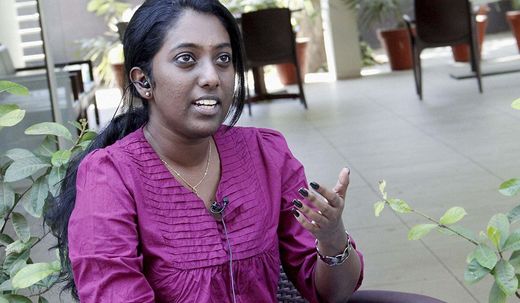On November 18, 2012, all hell broke loose for Shaheen Dhada and Rinu Srinivasan of Palghar in Maharashtra. Shaheen wrote a Facebook post criticising the shutdown of Mumbai after the death of Shiv Sena leader Bal Thackeray, and Rinu liked it. They were detained by the police, Shaheen's uncle's clinic was vandalised and India realised, again, the perils of free expression.
“I had never thought that by just liking a post, I would be in such a situation. I remember there were about 200 angry people outside the police station that day,” says Rinu. The ordeal was as surreal as it was stressful―when Rinu was slapped by two women outside the police station, she felt more confused than angry. “Just as I was entering the premises [of the police station], two women approached me, said something and, in quick succession, slapped me,” she says. “My dad was standing there helpless and he could only say 'sorry' to them, because even he had no clue what I had done.”
Rinu and Shaheen knew that they had not done anything wrong. “We were of the firm belief that we had done no wrong and that legally, there was nothing anyone could do to us. At that point, we were more afraid of the mob outside and about the political pressure on the police that could lead to them charging us with serious offences we didn't actually commit,” says Rinu. Then, a few minutes later, a woman constable came and told them that a mob had vandalised Shaheen's uncle's clinic. “Shaheen broke down. She was worried about the fact that her post had resulted in a heavy financial loss to her uncle,” says Rinu.
Even as their arrests spawned outrage and feverish debates on freedom of speech, their families were trying to figure out their next step. Shaheen's father, Farookh Dhada, feared for their lives. But, as days went, things limped back to normalcy. “Some people would tell me, 'what was the need to like the post?' But my friends and family supported me throughout,” says Rinu. Farookh, too, supported her daughter, telling her that she had done nothing wrong. “In fact, we got support of the entire country,” he says.
 Justified stand: Rinu Srinivasan | PTI
Justified stand: Rinu Srinivasan | PTI
The girls have moved on. Shaheen is married and lives in Bengaluru. Rinu went to Kerala to study audio engineering. Recently, when she was shopping for her brother's wedding, a television channel called her and asked whether she knew that section 66A of the Information Technology Act, which she and Shaheen had been charged under, had been struck down by the Supreme Court. Elated, Rinu did not know how to react. “I am so happy now that I don't know how to express it,” she says.
Shaheen is glad that the section will no longer be used to harass people. “I am happy that our generation has protested against the injustice done to me and stood up for what is right. Even the media has done a good job. I thank Shreya Singhal for filing PIL against 66A,” she says.
But, for Farookh, there are worries that need to be addressed. “We were to be given a compensation of Rs50,000, but we have not got that yet. The machinery in the clinic that was attacked cost Rs8 lakh. We had ministers coming and promising that they would do something. But nothing has happened,” he says. The culprits behind the attack still roam free. “The police made some arrests,” he says. “But, by evening, they [the arrested] were out on bail.”
For now, though, Farookh is happy. He asks for the contact details of Singhal. “I would like to speak with her and thank her,” he says.





